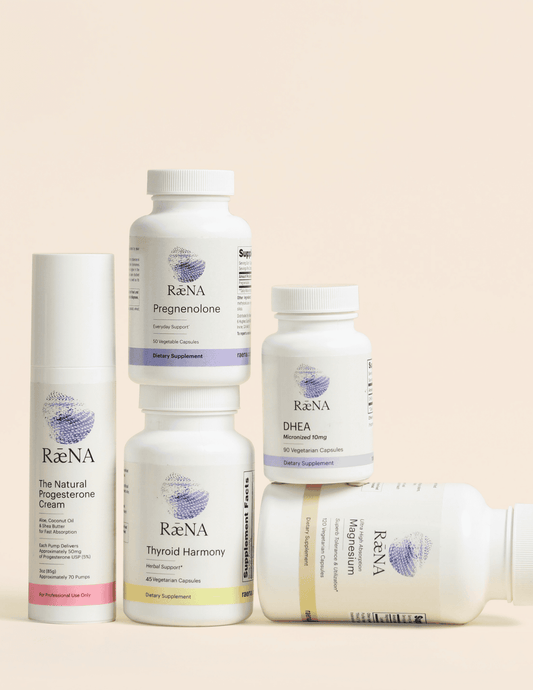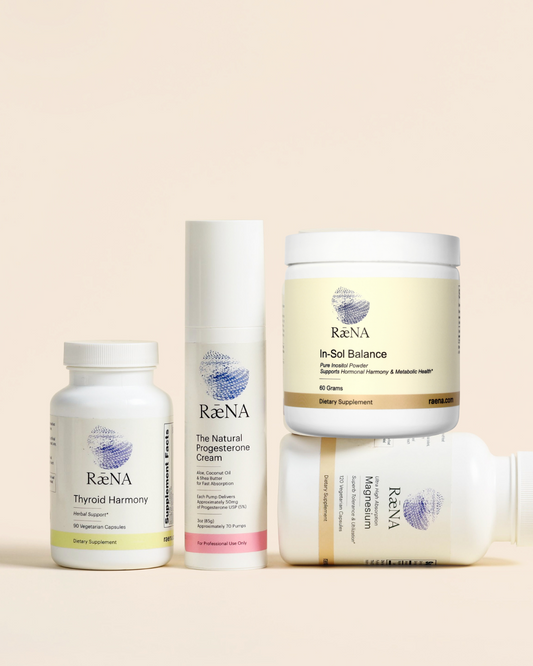
How hormones affect the skin
RaenaHow Hormones Impact the Skin
The skin is the largest organ of the body, so it’s no surprise that hormones have a major impact on its health and appearance. Here’s the science behind how hormones affect the skin:
“In this wide sense, human skin and its tissues are both targets and producers of hormones. Skin cells produce insulin-like growth factors and binding proteins, propiomelanocortin derivatives, catecholamines, steroid hormones, vitamin D from cholesterol, retinoids from dietary carotenoids, and eicosanoids from fatty acids.
Hormones act on the skin through high-affinity receptors for peptide hormones, neurotransmitters, steroid hormones, and thyroid hormones. Additionally, the skin can metabolize, activate, and inactivate hormones.” (Horm Res 2000)
The skin is not an isolated organ — hormonal activity in the skin influences overall health, including immune system function.
Hormone-related skin changes
Thinning and wrinkled skin often indicate dehydration and hormone depletion, commonly seen in peri- and post-menopausal women.
Using transdermal natural progesterone as a skin moisturizer can help. Progesterone cream is well absorbed through the skin and can restore hydration. Many patients report a more youthful appearance with fewer wrinkles.
A study showed that topical 2% progesterone cream increased skin elasticity and firmness in peri- and postmenopausal women, suggesting it may slow skin aging after menopause (Br J Dermatol 2005).
Testosterone and the skin
Testosterone also improves skin appearance:
“…Testosterone has rejuvenating effects on aging human skin. It reduces wrinkles, promotes hair growth, and increases sweating. Progesterone and pregnenolone cause similar but smaller changes, while estrogen had no effect, and corticosteroids worsened skin aging.” (Effect of Topical Hormones on Aging Human Skin)
DHEA and skin health
Topical DHEA may also improve skin quality. Studies on rats treated with DHEA showed significant improvements in all skin layers compared to oral estrogen treatments (Horm Mol Biol Clin Investig 2010).
Human studies found that topical DHEA stimulates collagen production by increasing dermal fibroblasts and procollagen types 1 and 3, potentially serving as a useful anti-aging agent (Br J Dermatol 2010).
Another study confirmed DHEA provides beneficial skin effects rarely seen with other topical treatments (Maturitas 2008).
The skin-hormone connection
Human skin not only produces but also metabolizes sex hormones. Given the multiple roles hormones play in skin health, many skin issues may be linked to hormone imbalances. Hormone-based therapies, including topical progesterone, testosterone, and DHEA, offer promising options for treating aging and other skin concerns.
References
-
C.C. Zouboulis. Human skin: an independent peripheral endocrine organ. Horm Res. 2000;54(5-6):230-42. PubMed
-
Holzer G et al. Effects and side-effects of 2% progesterone cream on the skin of peri- and postmenopausal women: results from a double-blind, vehicle-controlled, randomized study. Br J Dermatol. 2005 Sep;153(3):626-34. PubMed
-
Papa C. Effect of Topical Hormones on Aging Human Skin. J Soc Cosmetic Chemists. 1967 Aug;18:549-562. PDF
-
El-Afify M et al. Skin responses to topical dehydroepiandrosterone: implications in antiaging treatment. Br J Dermatol. 2010 Nov;163(5):968-76. PubMed
-
Nouveau S et al. Effects of topical DHEA on aging skin: a pilot study. Maturitas. 2008 Feb 20;59(2):174-81. PubMed


